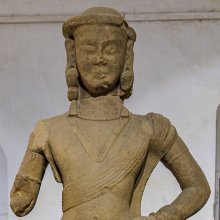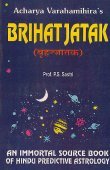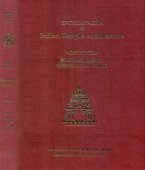Varman, Varma, Varmā, Varmaṉ: 18 definitions
Introduction:
Varman means something in Buddhism, Pali, Hinduism, Sanskrit, Marathi, Hindi, Tamil. If you want to know the exact meaning, history, etymology or English translation of this term then check out the descriptions on this page. Add your comment or reference to a book if you want to contribute to this summary article.
Images (photo gallery)
In Hinduism
Purana and Itihasa (epic history)
Source: archive.org: Puranic EncyclopediaVarmā (वर्मा).—In ancient days it was the custom to add the word 'Varmā' to the names of Kṣatriyas. Brāhmaṇas had to add the word Śarmā, Kṣatriyas the word Varmā Vaiśyas the word Gupta and Śūdras the word Dāsa to their names according to rules. (Agni Purāṇa, Chapter 153).
Source: Cologne Digital Sanskrit Dictionaries: The Purana Index1a) Varman (वर्मन्).—An appellation for Kṣatriya.*
- * Viṣṇu-purāṇa III. 10. 8-9.
1b) A son of Uśīnara.*
- * Viṣṇu-purāṇa IV. 18. 9.

The Purana (पुराण, purāṇas) refers to Sanskrit literature preserving ancient India’s vast cultural history, including historical legends, religious ceremonies, various arts and sciences. The eighteen mahapuranas total over 400,000 shlokas (metrical couplets) and date to at least several centuries BCE.
Shaivism (Shaiva philosophy)
Source: SOAS University of London: Protective Rites in the Netra TantraVarman (वर्मन्) refers to “(being) enveloped”, according to the Netratantra of Kṣemarāja: a Śaiva text from the 9th century in which Śiva (Bhairava) teaches Pārvatī topics such as metaphysics, cosmology, and soteriology.—Accordingly, [verse 2.28cd-33]—“Now, I shall explain the limbs of the mantra, with which, tied together, he achieves perfection. [...] Śikhā is taught as māyā [ī] joined with the cessation of wind [ṃ]. [The kavaca is] the closed īśa [h], rising Īśvara [ṃ]and joined with an elevated half of twelve [ū]. Now with nāda joined with Śiva and Śakti he is enveloped and supreme (varman—yuktaṃ tad varma cottamam).”.

Shaiva (शैव, śaiva) or Shaivism (śaivism) represents a tradition of Hinduism worshiping Shiva as the supreme being. Closely related to Shaktism, Shaiva literature includes a range of scriptures, including Tantras, while the root of this tradition may be traced back to the ancient Vedas.
In Buddhism
Mahayana (major branch of Buddhism)
Source: Wisdom Library: Maha Prajnaparamita SastraVarman (वर्मन्) refers to “one’s armor”, according to Mahāprajñāpāramitāśāstra (chapter 4).—Accordingly, “[Question: Why is the Buddha called Arhat?]—[Answer]: Ara means enemy (ari) and hat means to kill (han). The expression therefore means ‘killer of enemies’. Some stanzas say: ‘The Buddha has patience (kṣānti) as his armor (varman), Energy (vīrya) as his helmet (śīrṣaka), Discipline (śīla) as his great steed (mahāśva), Dhyāna as his bow (dhanus), Wisdom (prajñā) as his arrows (śara). Outwardly, he destroys the army of Māra (mārasena). Inwardly, he destroys the passions (kleśa), his enemies. He is called Arhat. [...]’.

Mahayana (महायान, mahāyāna) is a major branch of Buddhism focusing on the path of a Bodhisattva (spiritual aspirants/ enlightened beings). Extant literature is vast and primarely composed in the Sanskrit language. There are many sūtras of which some of the earliest are the various Prajñāpāramitā sūtras.
Languages of India and abroad
Marathi-English dictionary
Source: DDSA: The Molesworth Marathi and English DictionaryVarma (वर्म).—n (S) Armour or mail. 2 An affix to the names of men of the Kshatriya tribe; as kṛṣṇavarmā kṣatriya. varmēṃ carmēṃ chēdaṇēṃ (To pierce through armour and skin.) To pierce deeply, thoroughly, vitally, lit. fig.
--- OR ---
varma (वर्म).—n ( A Tumor or imposthume.) A sore and quickly sensible place; a tender and irritable part: also a vital member or organ; a mortal spot. This literal sense is not so general as the following figurative sense arising from it; viz. A touchy point; a vulnerable part; a matter or subject (such as a secret foible, failing, slip) upon which, at the very naming of it, passion rises. 2 If the derivation above suggested be correct, the signification set down should be viewed as involving the whole import of the word; but as the word is indisputably common also in all the senses and applications of the word marma, it possibly may from it have been formed, through that ignorance or heedlessness with which, as the source and spring of formations, the proficient in Maraṭhi is abundantly conversant; and thus even the compounds varmabhēda, varmasthala, varmasthāna &c. may sometimes be met with. Turn to marma for full explication and illustration.
Source: DDSA: The Aryabhusan school dictionary, Marathi-EnglishVarma (वर्म).—n A sore and quickly sensible place; a touchy point. An affix to the name of kṣatriya as kṛṣṇavarmā.
Marathi is an Indo-European language having over 70 million native speakers people in (predominantly) Maharashtra India. Marathi, like many other Indo-Aryan languages, evolved from early forms of Prakrit, which itself is a subset of Sanskrit, one of the most ancient languages of the world.
Sanskrit dictionary
Source: DDSA: The practical Sanskrit-English dictionaryVarman (वर्मन्).—n. [āvṛṇoti aṅgam vṛ-manin Uṇādi-sūtra 4.157]
1) An armour, a coat of mail; स्वहृदयमर्मणि वर्म करोति सजलनलिनी- दलजालम् (svahṛdayamarmaṇi varma karoti sajalanalinī- dalajālam) Gītagovinda 4; R.4.56; Mu.2.8; Śiśupālavadha 15.76.
2) (Hence) Shelter, protection.
3) Bark, rind.
4) Name of preservative mantras (esp. of hum). -m. An affix added to the names of Kṣatriyas; as चण्डवर्मन्, प्रहारवर्मन् (caṇḍavarman, prahāravarman); cf. दास (dāsa).
Source: Cologne Digital Sanskrit Dictionaries: Benfey Sanskrit-English DictionaryVarman (वर्मन्).—i. e. vṛ + man, n. Armour, mail, [Rājataraṅgiṇī] 5, 195.
Source: Cologne Digital Sanskrit Dictionaries: Cappeller Sanskrit-English DictionaryVarma (वर्म).—(adj. —°) = varman.
Source: Cologne Digital Sanskrit Dictionaries: Cappeller Sanskrit-English DictionaryVarman (वर्मन्).—[neuter] armour, coat of mail (lit. cover); shelter, protection.
Source: Cologne Digital Sanskrit Dictionaries: Monier-Williams Sanskrit-English Dictionary1) Varman (वर्मन्):—n. (or m., [Siddhānta-kaumudī]; [from] √1. vṛ) ‘envelope’, defensive armour, a coat of mail, [Ṛg-veda] etc. etc.
2) a bulwark, shelter, defence, protection, [ib.] (often at the end of the names of Kṣatriyas)
3) bark, rind, [Varāha-mihira’s Bṛhat-saṃhitā]
4) Name of [particular] preservative formulas and prayers ([especially] of the mystic syllable hum), [Bhāgavata-purāṇa]
Source: Cologne Digital Sanskrit Dictionaries: Monier-Williams Sanskrit-English Dictionary1) Varma (वर्म):—[from varman] 1. varma in [compound] for varman.
2) [from varman] 2. varma (ifc. f(ā). ) = varman, [Mahābhārata]
Source: Cologne Digital Sanskrit Dictionaries: Yates Sanskrit-English DictionaryVarman (वर्मन्):—(rmma) 5. n. Armour; mail.
Source: DDSA: Paia-sadda-mahannavo; a comprehensive Prakrit Hindi dictionary (S)Varman (वर्मन्) in the Sanskrit language is related to the Prakrit word: Vamma.
[Sanskrit to German]
Sanskrit, also spelled संस्कृतम् (saṃskṛtam), is an ancient language of India commonly seen as the grandmother of the Indo-European language family (even English!). Closely allied with Prakrit and Pali, Sanskrit is more exhaustive in both grammar and terms and has the most extensive collection of literature in the world, greatly surpassing its sister-languages Greek and Latin.
Hindi dictionary
Source: DDSA: A practical Hindi-English dictionaryVarma (वर्म) [Also spelled varm]:—(nm) an armour; ~[rmita] armoured.
...
Kannada-English dictionary
Source: Alar: Kannada-English corpusVarma (ವರ್ಮ):—
1) [noun] deep hatred; animosity; enmity.
2) [noun] a promise; a vow.
3) [noun] an unduly high opinion of oneself; exaggerated self-esteem; conceit; pride.
--- OR ---
Varma (ವರ್ಮ):—[noun] something that is or is kept secret, hidden or concealed; a secret.
--- OR ---
Varma (ವರ್ಮ):—
1) [noun] a metal or leather covering to protct the body against weapon; an armour.
2) [noun] a protecting or being protectged.
3) [noun] a case for the blace of a sword; a sheath.
4) [noun] the outside covering of the stems of trees and woody plants; bark.
5) [noun] a surname to the names of men belonging to a few kṣatriya families.
Kannada is a Dravidian language (as opposed to the Indo-European language family) mainly spoken in the southwestern region of India.
See also (Relevant definitions)
Starts with: Varmahara, Varmana, Varmanarayanatmaka, Varmanem, Varmanushi, Varmanvant, Varmanvat.
Ends with (+176): Acalavarman, Achalavarman, Adityavarman, Ajayavarman, Amitravarman, Anantashaktivarman, Anantavarman, Apaharavarman, Arthavarman, Aryavarman, Asankitavarman, Ashmavarman, Avanivarman, Avantivarman, Avarman, Bahulavarman, Balavarman, Bandhuvarman, Bhadanta jnanavarman, Bhadantajnanavarman.
Full-text (+250): Vamma, Varmana, Varmahara, Lohavarman, Anantavarman, Varma, Varmamantra, Varmasharman, Varmakasha, Varmita, Varmanvat, Varmacuttiram, Mayuravarmacaritra, Naravarmanripatikatha, Jayavarmadeva, Varmavat, Varmakantaka, Harivarmadeva, Panduvarmadeva, Shivavarmakathana.
Relevant text
Search found 65 books and stories containing Varman, Varma, Varmā, Varmaṉ; (plurals include: Varmans, Varmas, Varmās, Varmaṉs). You can also click to the full overview containing English textual excerpts. Below are direct links for the most relevant articles:
Sanskrit sources of Kerala history (by Suma Parappattoli)
4. The Lilatilakam < [Chapter 6 - Miscellaneous Sanskrit works bearing on Kerala history]
6.4. Ravi-varma Prasasti (Chandrakala-mala) < [Chapter 2 - Historical details from Mahatmyas and Prashastis]
4. The Sivavilasa of Damodara Chakyar < [Chapter 3 - Historical Details from Mahakavyas]
Rudra-Shiva concept (Study) (by Maumita Bhattacharjee)
2. Vājasaneyi-saṃhitā (a): Physical appearance of Rudra < [Chapter 2 - Rudra-Śiva in the Saṃhitā Literature]
1. Ṛgveda (c): Benevolent aspects of Rudra < [Chapter 2 - Rudra-Śiva in the Saṃhitā Literature]
4. Atharvaveda-saṃhitā (g): Rudra’s relation with other gods < [Chapter 2 - Rudra-Śiva in the Saṃhitā Literature]
Manusmriti with the Commentary of Medhatithi (by Ganganatha Jha)
Verse 2.32 < [Section X - The ‘Naming Ceremony’ (nāmadheya)]
Warfare and Military System in Vedic Literature (by Rinki Deka)
Arms and Armours < [Chapter 2 - Military System as Revealed in the Vedic Texts]
Composition of Army < [Chapter 2 - Military System as Revealed in the Vedic Texts]
Gati in Theory and Practice (by Dr. Sujatha Mohan)
Nāṭyaśāstra and regional deśi art forms < [Chapter 4 - Practice of Gati]
Analysis of technical terms: Abhinaya < [Chapter 1 - Nāṭya]
Gati in works on Nāṭya < [Chapter 2 - Concept and technique of Gati]
Chaitanya Bhagavata (by Bhumipati Dāsa)
Verse 1.8.75 < [Chapter 8 - The Disappearance of Jagannātha Miśra]
Verse 1.8.54 < [Chapter 8 - The Disappearance of Jagannātha Miśra]
Related products



